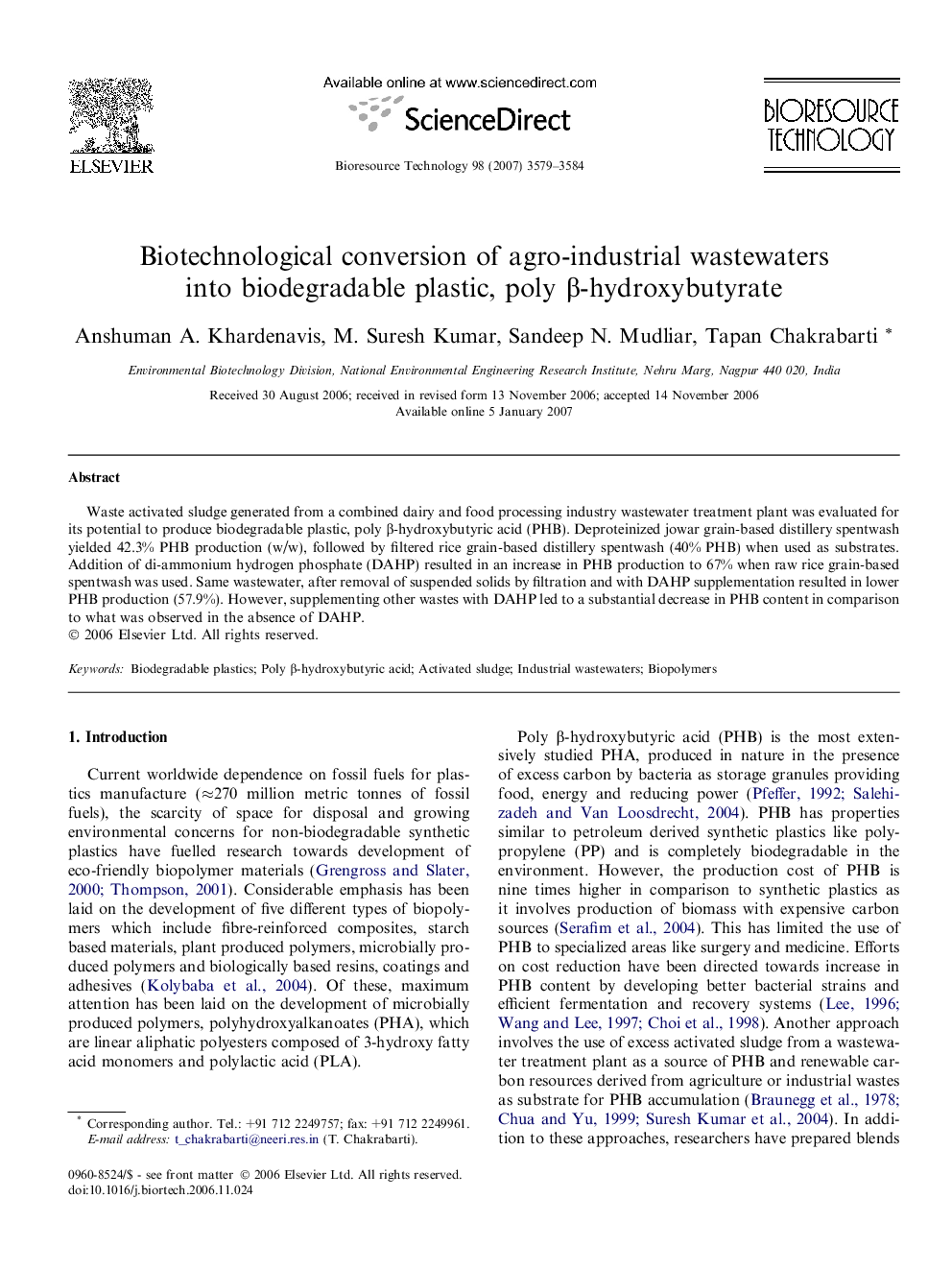| Article ID | Journal | Published Year | Pages | File Type |
|---|---|---|---|---|
| 686210 | Bioresource Technology | 2007 | 6 Pages |
Waste activated sludge generated from a combined dairy and food processing industry wastewater treatment plant was evaluated for its potential to produce biodegradable plastic, poly β-hydroxybutyric acid (PHB). Deproteinized jowar grain-based distillery spentwash yielded 42.3% PHB production (w/w), followed by filtered rice grain-based distillery spentwash (40% PHB) when used as substrates. Addition of di-ammonium hydrogen phosphate (DAHP) resulted in an increase in PHB production to 67% when raw rice grain-based spentwash was used. Same wastewater, after removal of suspended solids by filtration and with DAHP supplementation resulted in lower PHB production (57.9%). However, supplementing other wastes with DAHP led to a substantial decrease in PHB content in comparison to what was observed in the absence of DAHP.
